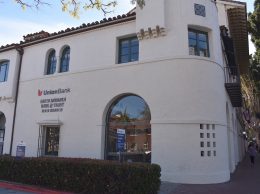Bank Secrecy Act spoils Christmas for merchants who prefer cash
By Lisa Spiwak
Sometimes something that starts out with good intention can turn bad. This seems to be what has happened with the Bank Secrecy Act of 1970.
Originally enacted with law enforcement in mind, the act’s original purpose was to aid investigations into an array of criminal activities, from tax evasion to money laundering, by requiring financial institutions to report deposits of more than $10,000 into their bank accounts. This was thought to be an effective tool in aiding the war on drugs, because the government could trace large cash deposits back to the maker and thereby catch the drug traffickers and cripple their operations.
Then, after Sept. 11, 2001, the BSA was not only used to locate drug traffickers, but also became entwined with efforts to improve homeland security. The government sought financial records of large deposits to aid in identifying terrorist financing activities. This still seemed to be a “good thing.”
However, things got dicey in 1992 when this new mandate was combined with the passing of a broader reporting requirement known as the Suspicious Activity Report, or SAR. Under SAR, banks are required to report any cash transaction wherein the customer “seems” to be trying to avoid BSA reporting requirements by depositing large amounts of cash but keeping those deposits under the $10,000 reporting flag.
This placed a huge burden on the banks to report any and all “suspicious activity” from their customer, or else face heavy penalties by the government for not doing so. The banks were also forbidden from letting their customer know that they were reporting them to the government.
All reports have to be made to the Financial Crimes Enforcement Network. This not only required the banks to spend enormous amounts of money to track their customers’ activities to look for suspicious deposit patterns, but it also forced bankers to, in essence, turn on their most valued customers. This has been highly problematic for banks in recent years from both an economic and a moral standpoint.
However, the bigger problem has been for business owners and wage earners that deal in cash. There are many businesses that still take in a lot of cash, such as restaurants, bars, gas stations, car washes, bakeries and minimarts.
And with the holiday season headed into full swing, many merchants are counting on a steady flow of cash to make the year profitable.
These businesses deposit cash on a regular basis. Depending on the success of the business, those cash deposits can be substantial and frequent. This is exactly the pattern of deposit that SAR is looking for and targets. As a result, run-of-the-mill businesses are getting caught up in the web of SAR and are becoming the target of government investigation. As if this is not bad enough, there is an even more serious consequence in being a target of a government investigation on this type. It stems from the Civil Asset Forfeiture Program.
The Civil Asset Forfeiture Program is an extraordinarily powerful law enforcement tool that allows the a government agency to take a bank customer’s money out of their account if that agency suspects the deposits establish a “structure” or pattern of illegal activity. The government can take the money without ever filing a criminal complaint and the owners are left to prove their innocence. Several middle-class people and small businesses are being targeted that have never had a problem with the law.
Since the burden is on businesses and individuals to prove their own innocence, many must to hire attorneys and forensic accountants at considerable expense. Often, it is so costly to prove their innocence, that these parties simply forgo fighting to get their money back.
In these cases, the government is allowed to keep the money they took. This has proven to be such a huge money maker for the government that more than 100 multi-agency task forces have been established to comb through bank records to look for accounts to seize.
• Lisa Spiwak has been practicing commercial collection litigation law for 28 years and is a partner with the law firm of Spiwak & Iezza, LLP in Thousand Oaks. Reach her at [email protected].












